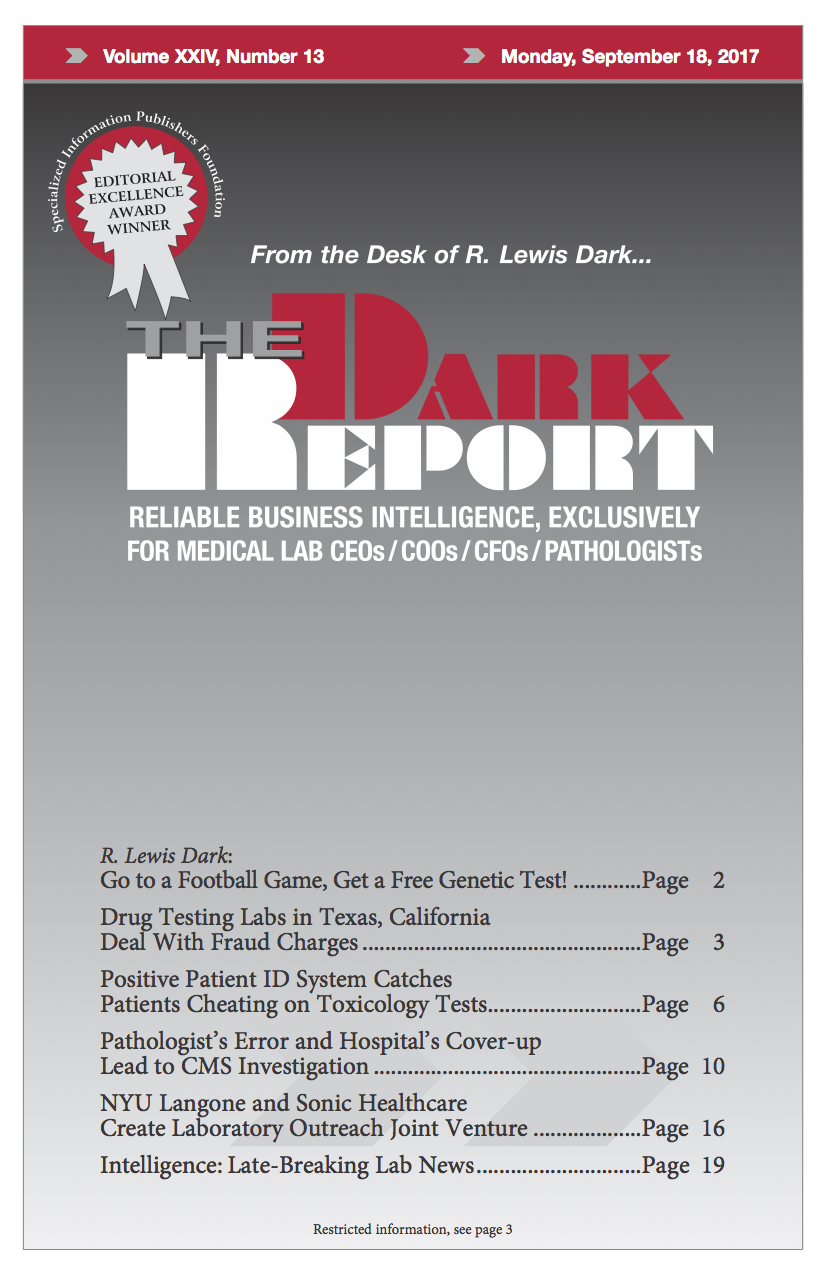CEO SUMMARY: Two toxicology lab companies accused of fraud are fighting to stay in business. In the case of Medicus Laboratories of Dallas, it is asking a federal judge to issue a temporary restraining order to prevent state and federal lab regulators from pulling its CLIA license. At Proove Biosciences of Irvine, Calif., following a …
Drug Testing Labs in Texas, California Deal With Fraud Charges Read More »
To access this post, you must purchase The Dark Report.


